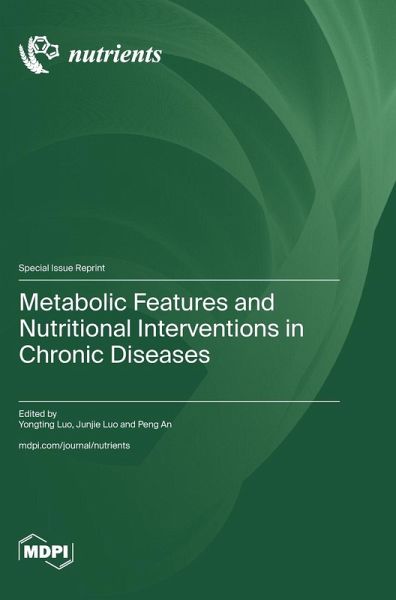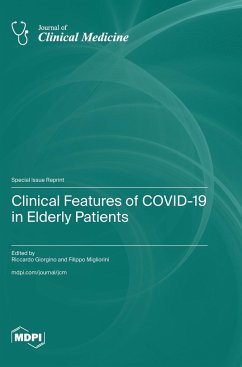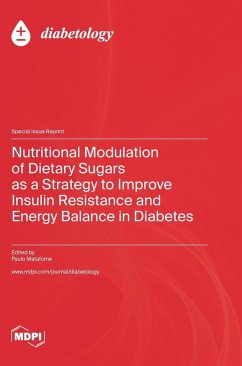
Metabolic Features and Nutritional Interventions in Chronic Diseases
Versandkostenfrei!
Versandfertig in 1-2 Wochen
75,99 €
inkl. MwSt.

PAYBACK Punkte
38 °P sammeln!
A growing body of research indicates an extensive metabolic dysfunction in a spectrum of chronic diseases, comprising aging, cancer, and diseases affecting the cardiovascular system, liver, and kidneys. The phenotypes associated with metabolic dysfunction vary depending on disease type and stage. In turn, the altered metabolism drives disease pathology. Consequently, the nutritional modulation of metabolic status in chronic disease is widely acknowledged to reduce disease incidence. For instance, tailored nutritional intervention in cancers with altered metabolism determines the improved thera...
A growing body of research indicates an extensive metabolic dysfunction in a spectrum of chronic diseases, comprising aging, cancer, and diseases affecting the cardiovascular system, liver, and kidneys. The phenotypes associated with metabolic dysfunction vary depending on disease type and stage. In turn, the altered metabolism drives disease pathology. Consequently, the nutritional modulation of metabolic status in chronic disease is widely acknowledged to reduce disease incidence. For instance, tailored nutritional intervention in cancers with altered metabolism determines the improved therapeutic responses. Additionally, counteracting muscle loss and osteoporosis are clinical goals of nutritional support in an aged population. Mechanistically, bioactive nutrients or tailored nutritional regimen modulate metabolism through mitochondrial homeostasis, immuno-regulation, as well as epigenome regulation to impact disease progression. This reprint aims to be an interdisciplinary platform that covers (1) characterization of metabolic features and/or nutritional requirement in a certain type of chronic disease; (2) defining the effects and mechanism of a specific nutrient or nutritional intervention on metabolism; (3) development of new nutritional strategy that improves disease outcome by altering metabolism.












